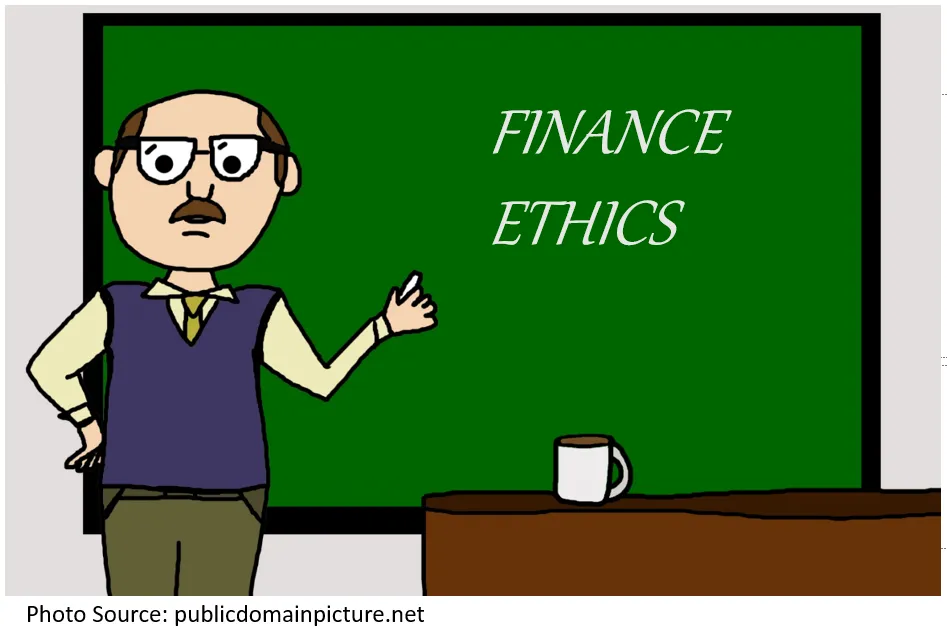
This is the second part of my essay on Finance Ethics. Given its importance, this new discipline can be promoted in academic institutions, particularly Business colleges by including information on courses related to business and Finance Ethics during freshmen orientations, aside from discussing the college’s code of conduct and ethical practices. In Business Ethics courses, which are more common than Finance Ethics, Business colleges can also include case studies or discussions with regard to ethics in the financial industry. Academic institutions can also invite academic scholars and industry practitioners that specialize in business ethics to share their knowledge and professional experiences. And the best that Business colleges can do is to create, at the very least, an elective Finance Ethics course.
In my years of teaching Business Ethics and Finance Ethics classes, I realized that Professors handling these classes should reiterate the balance among what’s legal, ethical, and profitable. It has always been the case that businesses should be profitable in order to survive, compete, expand and extend efforts to being ethical and socially responsible. However, going above what is legal and becoming ethical often sacrifices a certain degree of profitability, thus, negatively affecting shareholders’ wealth. I always remind my students that even if maximizing shareholders’ wealth through increasing profits is the main objective of every business organization, and should be pursued at the very least in a legal way, companies should still strive to increase wealth in an ethical manner to have a more holistic approach in having good stewardship with various stakeholders.
Another important topic is dealing with conflict of interest and moral hazard. Conflict of interest, in most cases, is a strong manifestation of moral hazard (i.e., taking more risks because others will take the burden); and are best demonstrated in the financial services industry particularly in stock brokerage firms and investment houses. I tell my students that in the future, they will be facing a situation wherein multiple interests are at stake - their professional duties, company earnings, client satisfaction, government regulations and other related interests, even including supplier benefits. Through my case studies and lecture discussions, I teach my students how to balance these competing interests by employing these techniques:
• upholding professionalism and following their job descriptions to save them from legal repercussions in the future; this also includes ensuring clients that they are qualified to do the job by showing professional competence and integrity;
• maintaining proper disclosure and open communication with superiors, clients and related parties if there are perceived deviations from their job descriptions or contracts signed; this also involves maintaining confidentiality as a way to prove one’s trustworthiness to clients;
• foregoing a business opportunity is sometimes best if it presents high conflicts of interest, and if it means taking risks to the detriment of the client.
My treatment of Finance Ethics now is not just a course that I am teaching my students, but it has evolved into a personal advocacy. I am dreaming that in the future, all of us will maintain ethics in our respective organizations. Ethics Education in Finance is the key in minimizing the number of financial and accounting misconducts, and in avoiding too much compliance cost because of increasing number of regulations as response to these transgressions.
Thank for you reading this essay regarding Finance Ethics. Have a good one.